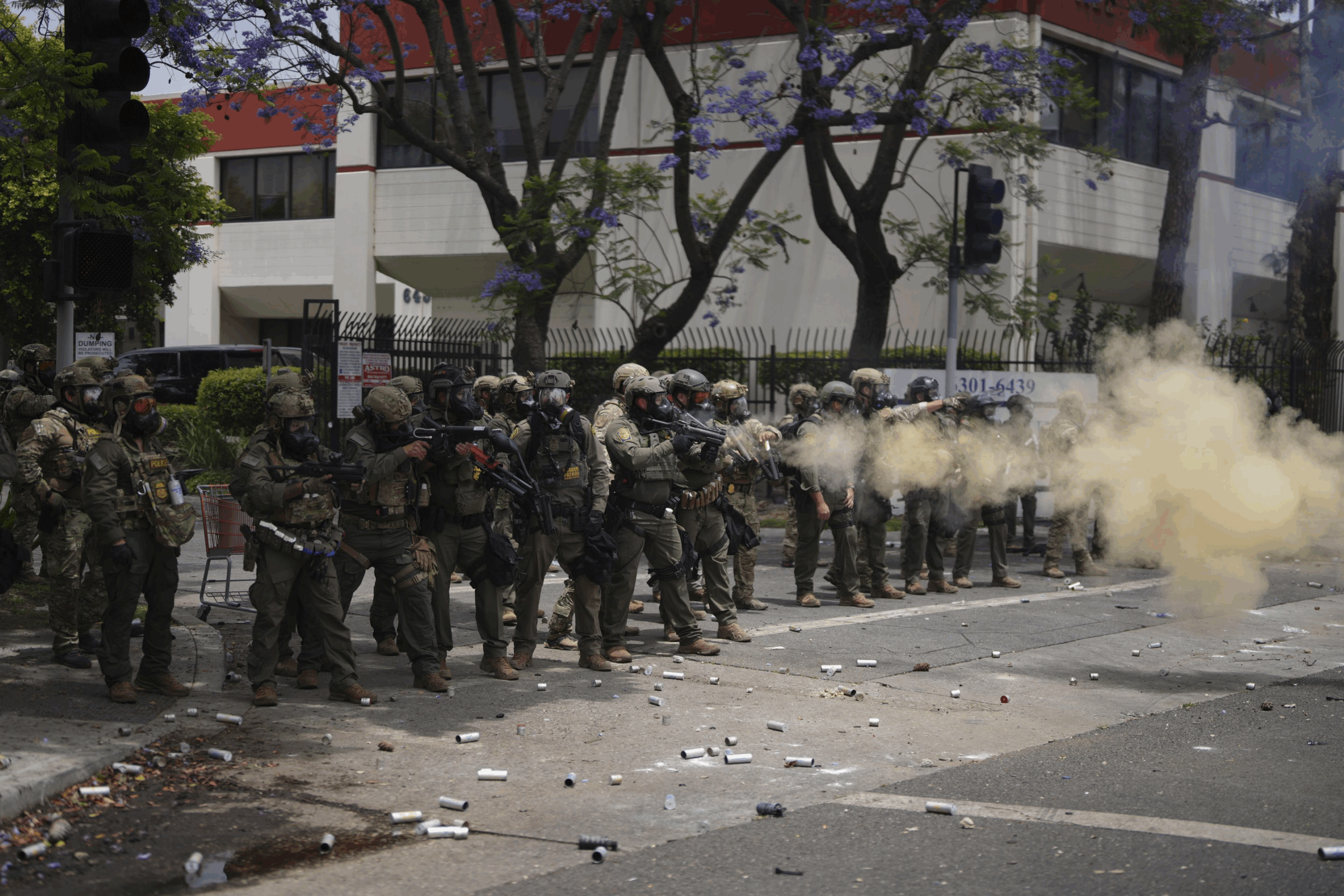Governor Calls Move “Dangerously Provocative”
Governor Gavin Newsom has slammed the federal government’s sudden takeover of the California National Guard. On Sunday, federal authorities deployed 2,000 troops to Los Angeles. The city has been rocked by days of unrest triggered by political clashes.

“This is a dangerously provocative act,” Newsom said in a fiery press release. “It’s unnecessary and deeply inflammatory. Our state and local agencies are equipped and capable.”
The unrest began last week, driven by deepening political divides. Protesters and counter-protesters have flooded the streets of downtown Los Angeles. Scattered violence, property damage, and arrests have followed. The governor argues that California’s response systems are already in place and working.
“We don’t need federal muscle we need calm. We need conversation. This move threatens both.” he said
Federal Troops Arrive Without State Consent
The deployment bypassed the governor’s authority. Newsom, clearly blindsided, noted that no prior consultation took place. “This is a breach of protocol and a breach of trust,” he said. “California has long managed its own emergencies. This is no different.”
As of Sunday night, federal officials have not issued a detailed explanation. The Pentagon confirmed the deployment but declined to comment on Newsom’s objections. The California National Guard also remains silent.
Fear of Escalation Grows
Los Angeles leaders are treading cautiously. The mayor’s office has called for peaceful demonstrations and calm. But local community groups fear that a military presence could backfire.
“This won’t quiet the streets,” said activist Jordan Vega of South LA Unity Coalition. “This will spark more anger. People see soldiers, not protectors.”

Police sources report that most demonstrations have been non-violent. However, pockets of confrontation have emerged, particularly after nightfall. Riot police have used tear gas and rubber bullets to disperse crowds. Several injuries have been reported.
A Flashpoint for Federal-State Conflict
The episode has revived debates over federal authority in domestic crises. Legal scholars are weighing in, warning that the move could set a dangerous precedent.
“Federal intervention in a state without coordination raises serious constitutional questions,” said Professor Linda Carver of UCLA Law School. “Governors have the primary responsibility for public safety in their states.”
Supporters of the federal deployment argue it was necessary. They say state leaders have failed to contain the situation. “If the governor won’t act decisively, someone has to,” said U.S. Representative Tom Dalton (R-TX). “This is about law and order.”
Newsom Urges Unity, Not Force
Newsom remains defiant. He insists the unrest can be addressed through cooperation, not confrontation. He called for community dialogue, local leadership, and long-term solutions.
“We are not at war with our people,” he said. “We are responsible for protecting their rights and restoring peace.”

He also warned that the federal move could have lasting consequences. “Trust is fragile. It takes time to build and seconds to destroy,” he added. “Heavy-handed tactics will not heal deep wounds.”
Uncertain Days Ahead
With troops now on the ground, Los Angeles enters a tense new chapter. Protesters remain active. Public officials are divided. National attention is locked on the unfolding drama.
For now, Governor Newsom stands firm. He’s pushing back against what he sees as federal intrusion into state affairs. “California leads with reason,” he said. “We will restore peace on our own terms.”
As daylight fades over Los Angeles, the city—and the nation—waits.
Our Visitor






 Users Today : 76
Users Today : 76

